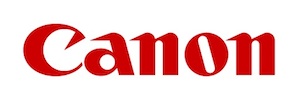Randy Davidson: Randy Davidson, CEO of What They Think and I'm here with Joe Davis, CEO of Consolidated Graphics. Joe, I wanted to ask you. You’ve been in the industry for a long time. You own a lot of companies. You guys are one of the largest printing companies in America and in North America. What do you see down the road as we enter into… end 2010 and enter into 2011? What do you see for our industry in terms of overall trends?
Joe Davis: Well if you believe The Economist our economy GDP wise is going to be somewhat flat. Some people say that the 2011 economy will be a little less than 2010 growth wise, but I think the industry where we offer for technology and a better mousetrap, better marketing materials and we’re going to continue to grow slightly, but I don’t think we’re going to have robust growth. I think our growth will come, a very, very modest growth, additional penetration of existing customers by and large. Certainly we’ll have new customers. We’ll have new products, new services and I think technology and digital printing and all these things are going to play an important role in our growth going forward and we’re very, very fortunate quite frankly. We’ve been technology leader over 10 years in our company. We have… I would have never believed it, but we have 100 people in our Houston office alone plus a number in India who support our technology growth, storefront sites, digital asset management, a number of things, QR codes and I'll let you explain QR codes, but in any event I think technology will continue to play a greater and greater role in our industry.
Randy Davidson: What do you think about the mergers and acquisitions area of the business in general, not for you guys specifically, but just generally are there opportunities still available out there?
Joe Davis: I think when you have a financially stressed economy, which is I think what we have today. We have a lot of banks that are under pressure, a lot of printing companies under pressure. I think you’re going to continue to see consolidation in the industry driven in large measure by certain financial stress, so we are active in the mergers acquisition business. Jim Cohen, who I believe you know heads our mergers and acquisitions department and we’re talking to a number of companies at all times and unfortunately a lot of them are stressed, but I got in the business during stressful times. I got in the business in Houston in 1985. In 1987 through about ’92 the Houston economy was stressed. Oil prices went down. Every bank in Texas went broke, were on the to somebody. Every savings and loan went broke with to somebody. Most real estate developers who were high flying before went broke, so Houston experienced Texas, Louisiana, Arkansas, Oklahoma experienced in the oil patch what the nation is experiencing today, so we’ve been through this before. We’ve seen what you can do during that period of time and in Houston actually we’ve built our company from one company to six companies by 1994 in a distressed economy, so we would expect to continue to grow during this period of time. We are very, very fortunate in that regard and we have a very conservative balance sheet. Somebody… You know I've been criticized from time to time for being too conservative. Well whatever. You know I'm still around, so we don’t have a highly leveraged balance sheet. We have a low debt to equity ratio, low debt to cash flow ratio and we think we can continue to grow in spite of the economy.
Randy Davidson: Well thank you Joe for speaking with us today.

 Official camera partner of WhatTheyThink and the drupa daily.
Official camera partner of WhatTheyThink and the drupa daily. 












